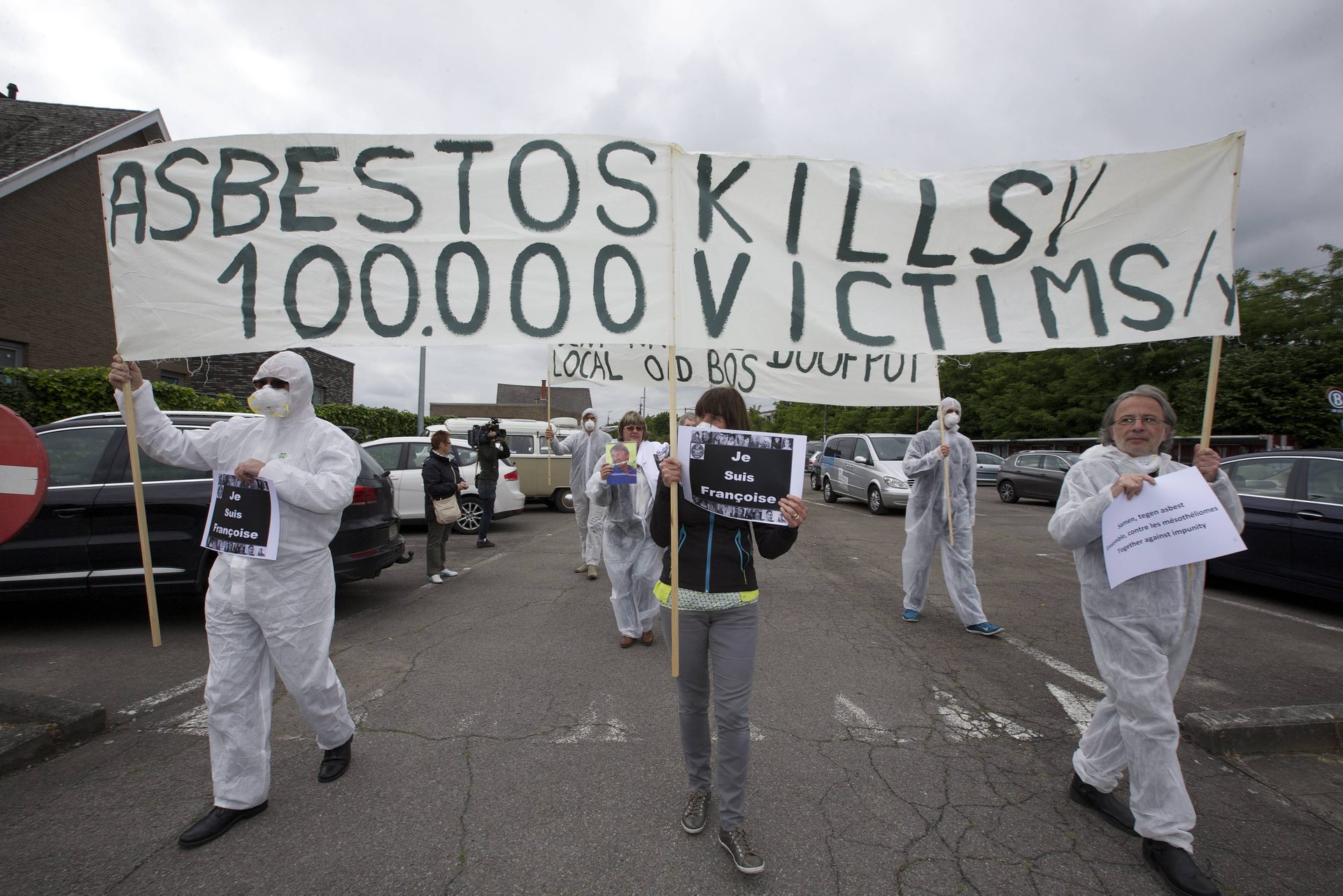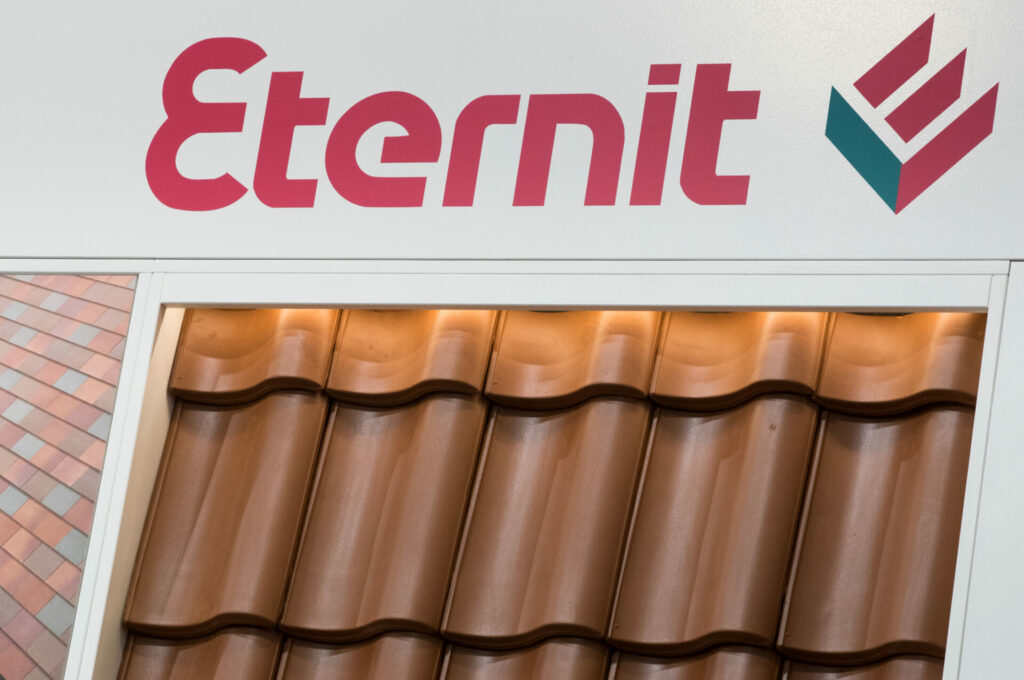A court has ruled that Belgian company Eternit (now Etex Group) which used to produce asbestos cement made a deliberate mistake in continuing the practice and that this led to the claimant contracting pleural cancer.
The Belgian company made its fame and fortune during the 20th century by producing asbestos cement, which was hailed as a magic mineral for corrugating roofs. Despite scientific evidence about the risk of asbestos exposure, Eternit minimised the dangers of its products for years, lobbied against restrictive legislation and swept any damaging information under the rug.
However, in a landmark move, the Dutch-speaking court of first instance in Brussels has now ruled against the company in the lawsuit brought by Éric Jonckheere, President of the Association of Asbestos Victims in Belgium (Abeva).
The court ruled that Eternit made a deliberate mistake in its years of producing asbestos and that this led to Jonckheere contracting pleural cancer.
Aware since the '60s
Jonckheere is the fifth in his family to face the disease; his father worked at and lived near the Eternit factory in Kapelle-op-den-Bos in central Flanders.
Like other patients, Jonckheere receives compensation from the company's Asbestos Fund, which was set up in 2007. But this compensation is largely described by affected families as hush money: payment in exchange for an agreement that recipients do not bring legal action unless the person can prove "deliberate misconduct".
According to Jonckheere and his lawyer, this was indeed the case on Eternit's behalf, resulting in the company being sued. The court agreed, finding that Eternit must have been aware from at least the first half of the 1960s of the severe health risks, particularly concerning cancer, to which it exposed both its employees, their family members, and residents by the way it handled asbestos in and around its factory.

People protesting near the entrance of the plant of asbestos manufacturer Eternit in Kapelle-op-den-Bos. Credit: Belga / Nicolas Maeterlinck
"By nevertheless leaving its conduct in this regard unchanged and continuing to operate its factory in identically the same way for decades, without taking the slightest protective measure, the defendant (Eternit) laconically accepted the risks in question a priori," the judgment read.
Symbolic ruling
The court awarded Jonckheere provisional damages of €50,000, opening up important perspectives for other victims, for the Asbestos Fund according to the polluter's liability principle, and for the future of asbestos removal in Belgium.
While Eternit argued that the court has given an interpretation to the intent requirement that it believes is not in line with the law, and has decided to appeal the decision, victims and their families believe it sets a real precedent.
"It is a very symbolic ruling. It shows that the asbestos fund does not mean that Eternit remains completely untouchable, but instead that there is still a possibility to seek vindication in a way," Marijke Van Buggenhout told The Brussels Times. She grew up near Kapelle-op-den-Bos and her father worked for decades at Eternit, now also suffering from mesothelioma.
"This will encourage others to consider taking on this case. We are also looking into whether we can sue on the same grounds. The main aim is to get the fact that Eternit is at fault on paper as often as possible."
Related News
- Green parties propose better protection for asbestos victims
- Forgotten killer: Belgian asbestos victims seek real sense of justice
- 40% of houses in Flanders likely contain asbestos
She also argued that, now that it has been proven that the company has made a deliberate error, the authorities should look into making Eternit pay more towards the fund.
"That would make a difference for victims, but also for society. We should not expect the government and taxpayers to pay for the damage caused by a company. So that could also be an important consequence of the court case," she concluded.

